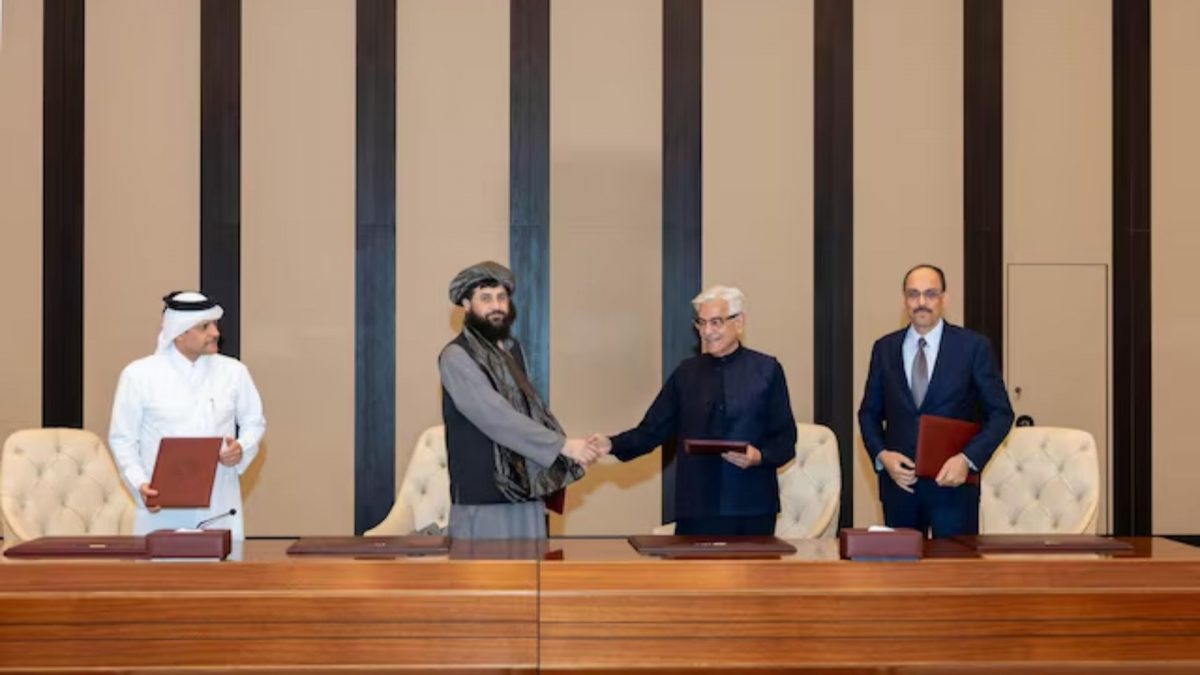Afghanistan’s Taliban led government has accused Pakistan of adopting an “irresponsible and non-cooperative” stance during the latest round of peace talks in Istanbul, claiming Islamabad tried to shift “all security responsibility” onto Kabul while refusing to take any itself. The Taliban-led government said this approach directly caused the two-day negotiations to fail.
In a statement on X (formerly Twitter), Taliban spokesperson Zabihullah Mujahid said the Afghan delegation had participated “in good faith and with appropriate authority”, expecting Pakistan to engage “seriously and constructively” after consulting its leadership. Instead, he said, Pakistan “did not demonstrate any willingness to assume responsibility for either Afghanistan’s security or its own”, leaving mediators Turkey and Qatar unable to bridge the gap.
Mujahid reaffirmed that Kabul would not allow Afghan soil to be used against any country and vowed to defend Afghanistan’s sovereignty “against any aggression.”
Talks collapse over written pledge on TTP
The talks, held on 6 and 7 November, failed to produce a written commitment from Kabul to act against Tehreek-i-Taliban Pakistan (TTP) militants, whom Islamabad accuses of launching attacks from Afghan territory.
Pakistani officials said the negotiations collapsed after Kabul declined to provide a written pledge to act against the group.
Defence Minister Khawaja Asif confirmed the suspension of talks, saying, “There is a complete deadlock. The negotiations have entered an indefinite phase.”
‘Verbal assurances not enough’, says Asif
Asif thanked Qatar and Türkiye for their mediation efforts but noted that even the facilitators had “lost hope” of progress.
“They support our stance. Even the Afghan delegation agreed with us; however, they were not ready to sign a written agreement. They wanted verbal assurances to be accepted, which is not possible in international negotiations,” he said.
Asif reiterated that Pakistan would only accept a formal written accord, warning: “If there is any attack from Afghan soil, we will respond accordingly. As long as there is no aggression, the ceasefire will remain intact.”
Quick Reads
View AllBorder tensions flare amid stalemate
The talks broke down as tensions rose along the border, with both sides accusing each other of overnight shelling that reportedly killed four Afghan civilians and injured several others.
Pakistan’s Information Minister Attaullah Tarar said, “The onus lies on the Afghan Taliban to fulfil its long-standing international, regional, and bilateral pledges regarding control of terrorism, in which so far they have failed.”
He added that Pakistan “does not harbour any ill will against the Afghan people” but “shall never support the Afghan Taliban regime’s measures that are detrimental to the interests of the Afghan people as well as neighbouring countries.”
Ceasefire holds despite repeated failures
Despite the deadlock, the Qatar-brokered ceasefire of 19 October remains technically in effect, though sporadic clashes continue along the border.
The Istanbul impasse marks the third failed attempt at reconciliation between the two neighbours, with no date set for a fourth round of talks. The first meeting was held in Doha on 29 October following deadly border clashes between 11 and 15 October, while the second round on 25 October in Istanbul also ended without progress.
)